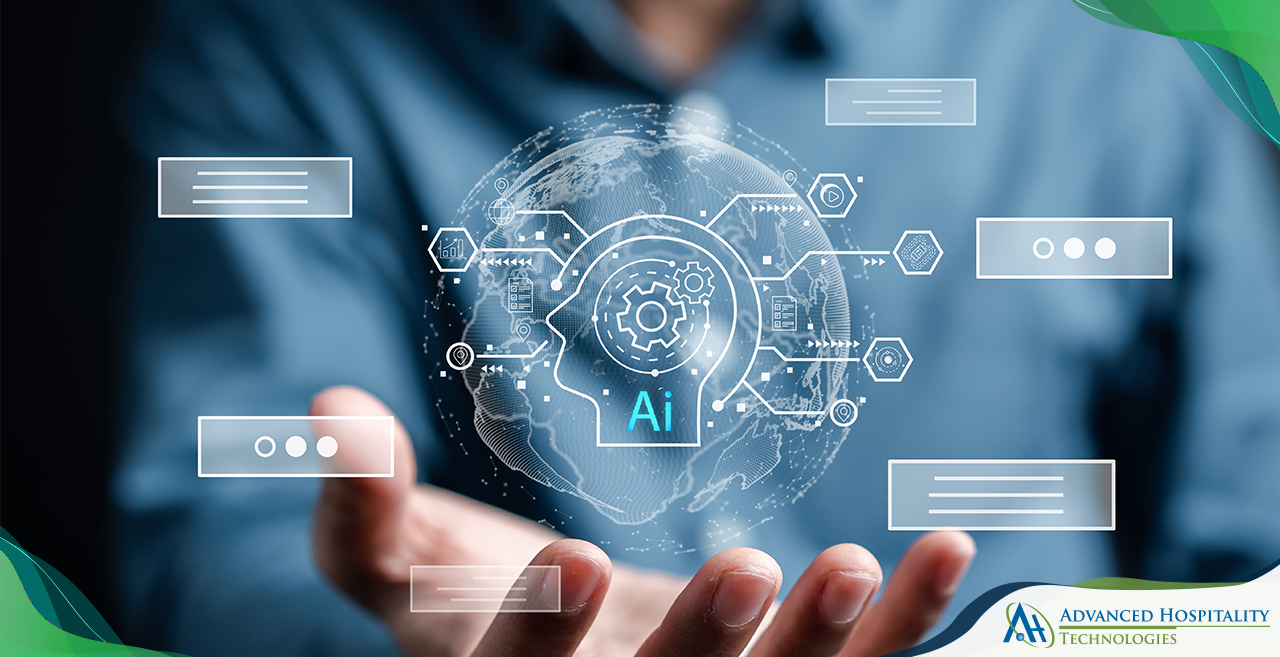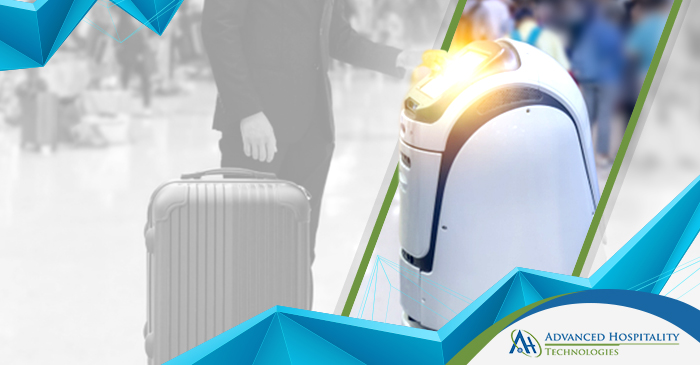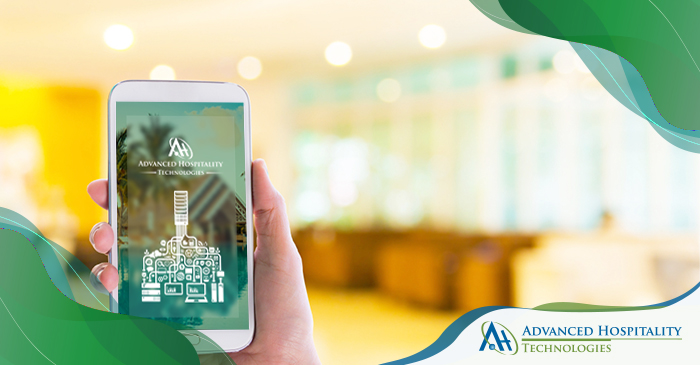Introduction
The hospitality industry is on the brink of a major transformation driven by emerging technologies like artificial intelligence (AI). As hotels compete to provide superior guest experiences in a digital-first world, AI-enabled innovations are fundamentally changing how hotels operate and deliver services.
While AI in hospitality is still in its early stages, its trajectory points to robots, virtual assistants, predictive analytics, and other AI technologies are becoming indispensable for managing successful hotels of the future. AI’s benefits include automation for routine tasks, insight mining from data, and highly personalized guest interactions. Hotel managers who embrace AI’s capabilities today will have a substantial competitive advantage.
This article explores the most significant applications of Artificial Intelligence that will shape the hospitality industry in the years ahead. We will examine how AI technologies can elevate customer service, enhance security, optimize operations, drive sustainability, and more. The use cases range from AI concierges and facial recognition at check-in to analytics-driven maintenance and energy efficiency across a hotel’s infrastructure. With these intelligent solutions and services, hotel managers can provide unmatched guest experiences while streamlining costs.
The hotel industry’s digital transformation is accelerating. As AI matures, its roles in managing every facet of a hotel will rapidly expand. Hotel managers should understand both the tremendous near-term potential and long-term implications of deploying Artificial Intelligence. With the right strategy and technology partners, hotels can thrive at the forefront of AI innovation. This article provides an in-depth look at how AI will redefine the hospitality experience.
Customer Service and Hyper-Personalization
Artificial intelligence is transforming customer service in the hotel industry by enabling hyper-personalized experiences. AI-powered chatbots can provide 24/7 support to guests, handling common requests and queries instantly. These virtual assistants analyze customer data and conversation history to make relevant recommendations and offer a more customized service.
Hotels are leveraging Artificial Intelligence to study guest preferences and habits, allowing them to tailor offerings specifically for each visitor. Technology like facial recognition enables staff to identify loyalty members and VIPs on arrival, greeting them by name and adjusting services based on their unique profile. Guests feel valued as a result, with hotels delivering personalized welcome gifts, room amenities, dining suggestions and activity recommendations.
AI empowers hotels to craft customized packages and special offers for customers. The technology looks at factors like previous bookings, preferred locations and budget to propose deals that match individual interests and needs. Similarly, chatbots can provide tailored destination advice to guests during their stay. Overall, hyper-personalization powered by Artificial Intelligence significantly improves customer satisfaction, builds loyalty and creates a more meaningful travel experience.
Predictive Analytics for Demand Forecasting
Artificial Intelligence can be used to analyze historical data to predict future demand for hotel rooms and rates in a specific location at a certain time. By looking at past booking data, occupancy levels, and pricing, AI-driven systems can identify patterns and trends that impact demand.
Hotels can leverage predictive analytics to optimize room pricing based on forecasted demand. When demand is expected to be high, hotels can charge higher rates, and when demand is slower, competitive pricing can help fill rooms. Rather than relying on simple high and low season pricing, predictive analytics enables more dynamic and optimized pricing strategies.
Hotels can also use forecasted demand to better plan staffing levels, availability in restaurants and event spaces, and other operations. With more accurate future projections from AI, hotels can right-size their capacity planning to match expected occupancy. This helps them provide enough supply to meet demand without overstaffing or underutilizing facilities.
Overall, predictive analytics from Artificial Intelligence allow hotels to maximize both occupancy and revenue per available room. With data-driven insights into future demand, hotels can align pricing, staffing, and operations to optimize financial performance. AI delivers a competitive advantage to hotel brands that leverage its forecasting capabilities.
Facial Recognition for Security and Check-in
Facial recognition technology is revolutionizing the hotel check-in process, enabling a more efficient, secure, and touchless experience for guests. Powered by AI, facial recognition systems can instantly verify a guest’s identity upon arrival by scanning their face and matching it to their photo ID.
This allows guests to skip long check-in lines and head directly to their room. Facial recognition also enhances security, acting as an additional safeguard against fraud or unauthorized room access. If someone attempts to check-in under an incorrect identity, the system will detect the mismatch.
Hotels can integrate facial recognition with their existing property management systems to pull up the guest’s reservation and preferences as soon as they are identified. This enables a hyper-personalized welcome and amenities tailored specifically for them.
Facial recognition data also allows hotels to better understand guest demographics, traffic patterns, and behavior over time. This generates useful analytics that can inform marketing initiatives, staffing levels, and operational decisions.
While there may be some initial privacy concerns, facial recognition for hotel check-in is very secure. The biometric data is encrypted and not retained after the stay. As travelers experience quicker, smoother, and more personalized check-ins, facial recognition is likely to become a standard feature that they will come to expect.
Robotics for Service Delivery
The use of robotics in hospitality can greatly improve efficiency, consistency, and automation for many repetitive tasks performed by human workers. Hotels are increasingly adopting service robots to deliver room service, provide concierge services, clean rooms, and more.
Robots excel at repetitive tasks without getting bored or tired. For room service, hotels can use autonomous robots to deliver food, beverages, and amenities directly to guest rooms. These robots can navigate busy hallways and elevators safely. By automating room service delivery with robots, hotels improve the speed and consistency of the service.
Robotic concierge services are also on the rise. Robots placed in the lobby can greet guests, provide directions or information about hotel amenities and local attractions, and make recommendations. This allows human staff to focus on providing a high-touch experience for guests. The robotic concierge is always available and provides consistent service.
For housekeeping, robotic vacuum cleaners and floor cleaners are becoming prevalent. These autonomous robots can efficiently clean floors with less staff oversight. Some models can even detect dirty spots and customize cleaning routes each day for greater optimization. This automation allows housekeeping staff to devote their effort to finer detailed cleaning and experience less fatigue.
By leveraging robotics for routine tasks, hotels can provide services to guests 24/7 with more consistency. This improves the guest experience while reducing labor costs. Automation also lets staff focus on more meaningful interactions with guests. Robotics will undoubtedly play an integral role in the hotel management of the future.
Smart Room Technology
Smart room technology is transforming the hotel guest experience by enabling mobile entry, automated climate control, entertainment systems, and voice assistant capabilities directly from guest devices.
Guests can use their smartphones as mobile keys to enter their rooms, skipping lengthy check-in procedures at the front desk. Bluetooth Low Energy and near field communication allow doors to unlock automatically as guests approach. Inside their rooms, guests have access to mobile apps that can control lighting, temperature, and other amenities to create the perfect ambiance.
Integrated entertainment systems let guests stream content directly to in-room TVs. Some hotels are implementing voice assistants like Amazon Alexa or Google Assistant so that guests can change channels or settings and access hotel information through voice commands. With everything controllable from mobile devices or by voice, smart rooms create a seamless and personalized hotel experience.
The automation and customization possible with smart room technology enables hotels to provide top-tier service. Guests can customize environments to their preferences and access amenities quickly without relying on manual interventions by hotel staff. Hotels benefit from faster check-ins and checkouts, reduced personnel demands, and lower energy costs from automatic climate adjustments. As smart room technology becomes more affordable and widespread, it will likely become a standard offering that guests expect from modern hotels.
Voice-based Controls
Voice-based technologies are transforming the guest experience and streamlining operations in hotels. By incorporating voice assistants and natural language processing, hotels can provide frictionless, personalized services to delight guests.
Voice-Enabled Devices for Guests
In-room voice assistants like Alexa and Google Home allow guests to control room features like lighting, temperature, and entertainment hands-free. Guests can ask questions, get recommendations, and manage wake-up calls and other requests simply by speaking. This creates a smoother, more intuitive stay.
Voice assistants can also serve as in-room concierges. Guests can inquire about hotel services, local attractions, restaurant recommendations, and more. This self-service model improves convenience while reducing the need for staff to field repetitive guest queries.
Voice-activated devices offer accessibility advantages as well. Features like closed captioning and screen-free operation better serve guests with disabilities. Voice automation boosts independence and enhances the experience for all.
Voice Assistants for Operations
Behind the scenes, voice technology assists hotel staff. Employees can use voice commands to look up guest information, access data, and complete tasks hands-free. This allows staff to devote more time to guest interactions instead of typing at computers.
Integrated voice assistants like Alexa for Hospitality streamline operations through voice-enabled features like service requests, maintenance alerts, and team communications. Staff simply speak to trigger standard processes instead of navigating multiple systems. This reduces workload and boosts productivity.
From guest rooms to back offices, voice technology creates smoother operations and superior service. As technology advances, voice promises to become an integral part of the hotel experience.
Operational Efficiency
AI and automation can greatly improve operational efficiency in hotels. By automating manual processes, AI enables hotels to reduce costs and free up staff time for higher-value tasks.
Inventory management and supply chain operations are prime areas where AI can drive major improvements. AI algorithms can track inventory levels across properties, forecast demand, optimize orders, and ensure adequate stock of supplies. This prevents overstocking and shortages.
AI also enables dynamic price adjustments based on supply and demand. By analyzing booking data, special events, and other factors, AI systems can recommend optimal pricing to maximize occupancy and revenue. This kind of dynamic pricing is extremely difficult to manage manually.
Chatbots and other AI systems can handle guest requests, reservations, and other simple customer service tasks, freeing up staff for more complex service issues. Natural language processing allows guests to communicate their needs just by typing or speaking.
Predictive maintenance is another key application. By analyzing sensor data from appliances and systems, AI can identify potential issues before they cause breakdowns and expensive repairs. Preventive maintenance reduces costs dramatically.
Overall, AI automation enables hotels to improve productivity and reduce waste. Routine tasks are handled quickly and accurately by AI systems, allowing human staff to focus on creative work like enhancing the guest experience. This creates higher value for both guests and the business.
Language Translation Services
The hospitality industry serves guests from all over the world who speak many different languages. This presents a major challenge for hotel staff who need to communicate effectively and provide high-quality service to every guest. AI-powered language translation technology can help bridge communication barriers between staff and international travelers.
Real-time translation services enabled by AI allow hotel staff to quickly communicate with guests in their native language. Smart translation devices can be deployed at the front desk, concierge, and other key points of guest interaction. Guests speak naturally in their own language, and the device provides instant two-way translations so that staff fully understand requests and preferences.
AI chatbots with multilingual capabilities can serve as virtual concierges that guests can access via their in-room devices. The chatbot can greet the guest, answer common questions, provide recommendations, and book services in the guest’s preferred language. This ensures that all guests receive personalized service regardless of the language they speak.
The ability to converse comfortably in one’s native tongue improves the guest experience and drives loyalty. AI translation allows hotels to provide consistent service quality across languages. This technology removes language barriers to enable the seamless, high-touch service that today’s travelers expect.
Conclusion
The use of Artificial Intelligence in hotel management is rapidly transforming the hospitality industry. As we have seen, AI enables hotels to provide hyper-personalized customer service, accurately forecast demand, streamline check-in procedures, deliver services via robotics, create smart room environments, implement voice-based controls, drive operational efficiency, facilitate multi-lingual communications, gain customer insights, predict maintenance needs, and promote sustainability.
Key takeaways include:
AI allows hotels to tailor offerings and interactions to each guest’s preferences and history, driving higher satisfaction. Chatbots and virtual assistants enable 24/7 automated customer service.
Predictive analytics tools empower hotels to forecast occupancy rates and revenue performance with greater precision. This supports better decision making around pricing, staffing, and sales strategies.
Facial recognition at check-in and for room access increases security while allowing guests to skip lines and keys.
Service robots can deliver amenities, provide information, handle luggage, and perform cleaning tasks efficiently. This liberates human staff for higher-value interactions.
Smart in-room AI features like virtual assistants, connected devices, and sensors enable a frictionless, personalized stay.
Voice-powered interfaces allow guests to conveniently control room features and request services.
AI optimizes behind-the-scenes operations like energy use, route planning, and preventative equipment maintenance. The future looks bright for AI-powered hospitality. Hotels that strategically implement the latest innovations will gain a competitive advantage in guest experience, efficiency, and sustainability. AI is reinventing hotel operations for the better. With thoughtful adoption, hotels can unlock AI’s full potential to delight guests, empower employees, and drive profitability.




